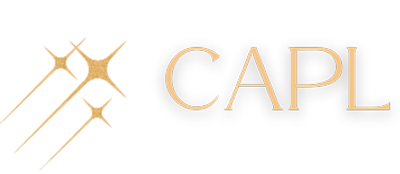Canada’s latest AML/ATF rules are now in force under the Proceeds of Crime (Money Laundering) and Terrorist Financing Act (PCMLTFA). These regulatory changes strengthen oversight, expand reporting obligations, and introduce new due diligence and sanctions reporting requirements. Here’s a breakdown of what changed and who’s impacted.
Who’s Impacted by the New Canada AML/ATF Rules
The following sectors and entities are directly affected by the latest PCMLTFA amendments:
- Money Services Businesses (MSBs)
- Title insurers (now classified as reporting entities)
- Real estate brokers and sales representatives
- Private ABM acquirers (now treated as MSBs)
- All reporting entities handling sanctioned property
Key Changes to Canada’s AML/ATF Compliance Requirements
1. MSB Agent Due Diligence and Criminal Record Checks
- Verify agent or mandatary eligibility before engagement and every 2 years + 30 days.
- Conduct criminal record checks for the CEO, president, directors, and all owners/controllers holding 20% or more (or for the individual agent).
- Records must be dated within 6 months and retained for 5 years.
- Legacy agents must be verified by October 1, 2027.
- Non-compliance penalties: Up to $250,000/2 years (summary) or $500,000/5 years (indictment).
2. High-Risk Beneficial Ownership (BO) Discrepancy Reporting
- For high-risk CBCA corporations, compare your internal BO data with Corporations Canada’s ISC database.
- If a material discrepancy exists, file a report within 30 days and retain acknowledgments for 5 years.
- No report required if resolved within 30 days (voluntary reporting still allowed).
- If ownership cannot be confirmed, take reasonable steps to verify and document the attempt.
3. Identity Verification via Agents (All Reporting Entities)
- Individuals: Use government photo ID, credit-file, or dual-process methods.
- Entities: Confirm existence using official registries or records.
- A written agreement with the verifying agent is mandatory.
- Reporting entities remain fully responsible for verification accuracy and must document oversight in their compliance program.
4. Real Estate: Unrepresented Party KYC
- Verify the identity of unrepresented parties.
- Complete all third-party determinations and maintain records.
5. Sanctioned Property and LPEPR Expansion
- File an LPEPR (Large Property or Entity Possession Report) with FINTRAC when disclosure is required under SEMA or the Magnitsky Act—in addition to existing UN Act/Criminal Code requirements.
- Broad deemed ownership rules capture entities controlled by sanctioned persons.
- If money laundering, terrorist financing, or sanctions evasion is suspected, file both LPEPR and STR.
- Retain reports for 5 years and integrate into AML and sanctions compliance workflows.
6. Title Insurers Now Reporting Entities
- Register with FINTRAC (if applicable).
- Build a complete AML/ATF compliance program, including KYC, recordkeeping, and reporting.
- Year 1: FINTRAC will focus on outreach and guidance rather than enforcement.
7. Private ABM Acquirers
- Must register as MSBs and implement full AML/ATF programs.
- Requirements include KYC, recordkeeping, and suspicious transaction reporting.
- Year 1: FINTRAC will support compliance readiness through outreach initiatives.
Key Dates to Remember
- In force: April 1, 2025 (early measures) and October 1, 2025 (additional provisions).
- Deadline: October 1, 2027 — initial MSB checks for pre–October 2025 agents.
Immediate Next Steps for Compliance
- To stay compliant with Canada’s new AML/ATF and PCMLTFA requirements, reporting entities should:
- Update policies, procedures, and staff training.
- Implement an MSB agent due diligence tracker for pre-engagement and biennial reviews, including criminal checks.
- Add BO discrepancy reporting workflows for high-risk CBCA clients.
- Document agent and mandatary KYC oversight with QA sampling.
- Update real estate processes to include unrepresented-party identity verification.
- Coordinate AML and sanctions teams for LPEPR and STR dual filings, freezing, and disclosures.
- Ensure 5-year record retention for all new records, reports, and acknowledgments.
Strengthening Canada’s AML/ATF Framework
The 2025 Canada AML/ATF rule changes mark a significant evolution in compliance expectations under the PCMLTFA. With new due diligence, ownership transparency, and sanctions reporting requirements, all reporting entities should act now to strengthen their compliance programs and reduce enforcement risk.
